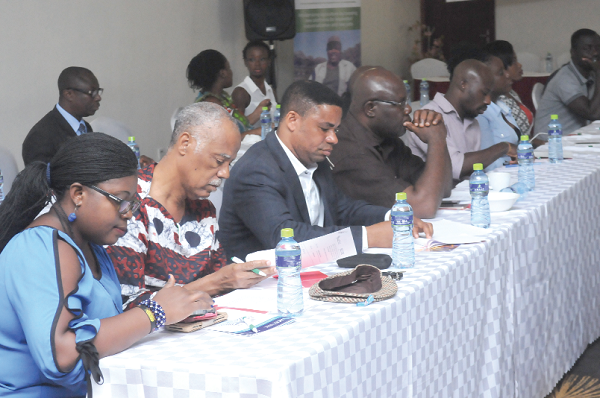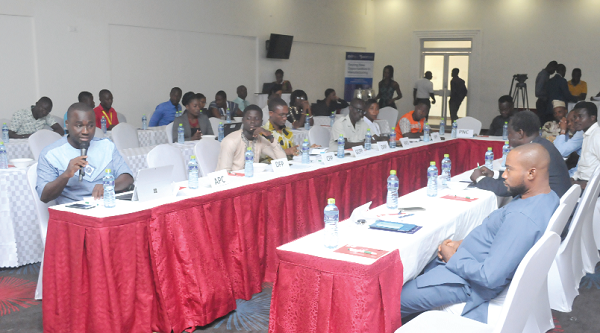
Parties agree on policies to address youth unemployment
Nine political parties have identified increased investment in agriculture, robust technical and vocational education and training (TVET), and prudent government policies as the best policies to deal with the rising spate of youth unemployment in the country. The parties observed that youth unemployment posed the greatest threat to national security and sustainable development for which reason it needed to be addressed.
The parties, which included the New patriotic Party (NPP), the Convention People’s Party (CPP), the Progressive People’s Party (PPP) and the People’s National Convention (PNC) were speaking at a round-table discussion held in Accra yesterday.

Apart from the National Democratic Congress (NDC), which was not represented, other parties such as the National Democratic Party (NDP), the Eagle Party, the United Renaissance Party (URP), and the Independent People’s Party (IPP) were also represented at the forum.
Forum
The forum formed part of the second national policy dialogue on youth employment challenges organised by the African Centre for Economic Transformation (ACET).
It was a follow up to an earlier forum held in July this year at which participants, who were drawn from the academia, civil society organisations (CSOs), among other stakeholders, discussed the challenges of youth unemployment on national development.
The Director of Research at ACET, Professor Joseph Amoako-Tuffour, gave an overview of the maiden national dialogue and pointed out issues such as the erratic power supply, inadequate investment in agriculture and the lack of a linkage between the educational system and industry as some of the reasons for youth unemployment in the country.
Contributions
Taking turns to discuss the issue, the political parties agreed that the country would be thrown into economic crisis and a state of insecurity if the political leadership failed to devise innovative policies that would create job opportunities for the youth.

A member of the NPP communication team, Mr Richard Asante Yeboah, reiterated the party’s agriculture mechanisation policy, saying the one village one dam policy was meant to improve agricultural production and to attract more youth into the sector. He added that the NPP would give tax rebate to companies which employed fresh graduates from the country’s tertiary institutions as a measure to encourage youth employment.
For his part, the Chairman of the PPP, Mr Nii-Allotey Brew Hammond, said the party was in favour of the concept of domestication and the use of modern technology to improve farming.
He said the party would make agriculture more business-oriented rather than depending on subsistence farming methods which he noted, did not motivate the youth to patronise the sector.
The General Secretary of the CPP, Mr Yaw Asani Tano, said it was important for the country to revisit the industrialisation policies that the CPP espoused after it led Ghana to independence.
Education
According to him, the educational system ought to be restructured to equip students with the skills required by industries. He added that, the seven million Almond trees the party outlined in its 2016 manifesto would be vigorously pursued if the CPP won this year’s election.
The PNC General Secretary, Mr Atik Mohammed, said the country ought to prioritise the establishment and investment in cottage industries to open up the rural areas and discourage the migration of the youth to the urban areas.
Mr Atik said the artisan industry also ought to be revamped and supported to absorb most of the unskilled youth.
The representatives of the other political parties shared similar views and called for industrial attachments and internships to be made more relevant to the skills needed by students so that they would become employable after school.
